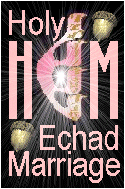



Chapter 3
The Stralsund Connection
Five hours later Anna was walking down Lange Strasse towards the Neuer Markt in the quaint mediaeval town of Stralsund. She carried only a small suitcase in her left hand and a prayer in her heart. Her only thought was: "Lord, guide my feet where they should go." She was not a bit tired, being far too excited by the sudden adventure she found herself in. She was not the type to ask hundreds of questions but to simply take things as they came.
The market was crowded with vendors and eager shoppers out to purchase vegetables, fruits and other wares. The state flags of Mecklenburg-Vorpommern fluttered in the slight breeze amongst the German tricolours. The scene was a gay and colourful one. Tourists were about in large numbers. Nobody had spoken to this strange Stettiner on the bus and upon arrival had all wandered off in different directions. So she was alone, and glad, because right now all she wanted was the companionship of her Lord to lead and direct her.
Anna had all the prejudices of her counrtrymen against the Germans who had waged a ruthless war half a century before. Though Stan had taught her to forgive and forget, it had not been easy, until she had been forced to confront the fact that she was one flesh with her part-German husband and that she would one day probably have a child with some of that hated blood. She had mellowed upon being reminded by her husband of the barbarism committed by her own people against the Jews in the days of the Polish Empire and how in recent history Poland had traitorously attacked newly independent Lithuania and Czechoslovakia after the First World War, to seize the Lithuanian capital, Wilno (Vilnius), as well as joining in with the nazis in the partition of Czechoslovakia in annexing the rich Teschen coal-bearing region in Czech Silesia.
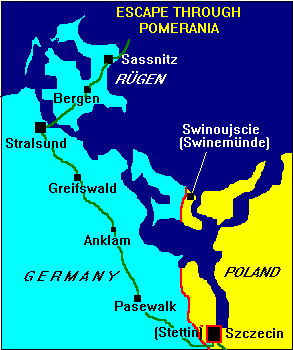
"No nation is guitless," Stan had said soberly, "and Poland is no angel either. Remember how we invaded the Soviet Union in the early 1920's and tried to seize half of the Ukraine, including her capital Kiev? We tried to rebuild the old Empire, and had we succedded, Poles would have been a minority in their own country. And don't forget the way we treated the German minority between the wars. It was such stupidity that gave Hitler a pretext for attacking us. And don't forget the way we forcibly tried to Polonise the Kashubian minority in West Prussia."
Anna's re-education at the hands of Stan had been difficult, as it had been for all the Poles in the family. Such things had been, and still were, politically incorrect in a Poland which was still trying to justify seizing one third of Germany at the end of the Second World War and forcibly expelling the exclusively German population, an act of violence which cost three million refugees their lives.
"We Poles have certainly suffered but we have not ourselves been guiltless. And until Poland faces the truth of herself she will never be at peace. The more she uses the nazi oppression to cover her own sins the worse it will be for her," Stan had continued. "Though the Germans will probably never be able to wage war against us again in the New Europe, they will never forgive us for all the lands we took off them and for the way we brutally treated the civil population. I just want you to know that blood is on the hands of both peoples. Once Poles come to accept that their enemies have suffered dreadfully at their hands also, there will be a possibility for forgiveness and reconcilliation between our two nations. I want you to learn to love the German people. They have not always been bad. They have done a great deal of good in history, and still are. Without them, Christianity would never have come to Poland, and without them there would have been no Reformation. And without them, our family would not be.
"Finally, remember this. The home your parents live in and where you were raised, once belonged to a German family who were forcibly expelled without compensation. Szczecin was once Stettin. It was built by the Germans in its entirety. You and other New Stettiners are enjoying the fruits of a thousand years of German hard labour. And whilst most of the city was destroyed in 1945 and was rebuilt by us, you still live in something that isn't, in God's eyes, really yours. Remember that."
Anna had not liked to hear these words but she could not deny them. Stan was always scrupulously fair to the extent that he was accused if being a nazi by some of his countrymen because he would not sustain the lies of their self-justification. Poland had lost as much land in the east to Russia as it had gained in the west from Germany, only the Poles had only been a small minority in her eastern territories whereas there had been virtually none at all in the western ones. But this was never spoken of. It was simply too uncomfortable for a nation seeking to absorb its new territories without having its conscience disturbed. Indeed, there had not been enough Poles to populate the German territories and they had, ironically, been forced to invite large numbers of foreign settlers from the Ukraine to occupy the German farms, especially in Silesia.
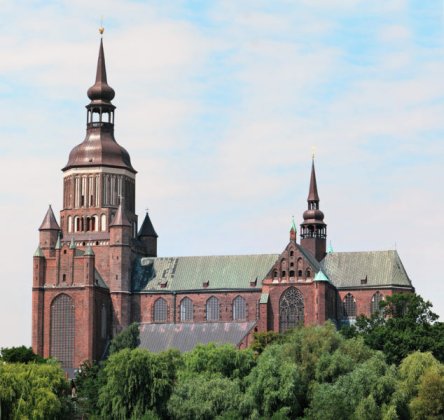 St.Mary's Church, Stralsund
St.Mary's Church, Stralsund
Anna's eyes swung around to St.Mary's Church, a vast brick structure, and alighted on the domineering tower. The beauty and elegance of the architecture held her captive and for a moment the people around her began to disappear. Her thoughts soared away with the beauty of it all. She felt a thump on her left shoulder as another tourist, similarly taken in, bumped into her.
"Unschuldigen Sie, bitte!" came an an almost perfect German voice but with a trace of Polish. Their eyes met. Anna was still half in her dream and for a moment wondered if she was sitting in the living room at Raj when her mind was suddenly filled with Stan. Stan's face was before her. She blinked. Stan?
"STAN!" she screemed, "it is you!"
Stan was as surprised as Anna was. He had grown weary of sitting by the telephone all day and taken a stroll through town to see the sights. He couldn't believe his eyes either.
"Anna, my darling, you're here!!"
They were too shocked to do anything at all for a few seconds and just stared at one another as one might do at a heavenly vision of great beauty. And then, as soon as the shock had worn off, Anna dropped her suitcase on the ground and they were in each other's arms again in passionate embrace.
"Oh Stan, oh Stan, I've been so worried - I've nearly been out of my mind! Why didn't you turn up in Szczecin? Where have you been?" she blurted, half crying half laughing, beating his chest with her fists in mock anger.
"Let's go back to my hôtel and I'll tell you. We've got to ring up home too and tell them that we're OK. They're worried stiff about you," said Stan as he led her back to the König von Preussen holding her hand tightly. She could do nothing but gaze up at him now - gone was the interest in the picturesque sights which for her were but a blurr.
Stan 'phoned from his room and told Björn that Anna was safe and sound. We let out a cry of joy when the news came and wanted to know when they would be back.
"I have no car," reminded Stan to Suszana who had taken the 'phone off Björn. "So I'm going to rest here a day or two with Anna and see if I can find another one. Then we'll drive to Sassnitz and take the ferry to Trelleborg. I'll call you as soon as I have some more information. Right now Anna and I are going to take a rest. We'll call you back this evening and fill you in with what's happened."
"Wonderful," answered Suszana. "Take care, my love, and come here as soon as you can. There's so much to see, say, and do!"
"I can imagine," laughed Stan. "We'll need several days to relate our adventures too. I still haven't heard Anna's story," and after saying goodbye, put the receiver down.
"I need a shower," insisted Anna, "and then I need you!"
Stan smiled and kissed her gently on the lips, slipped into bed, feeling relaxed at last, and began to doze off as Anna sang happily in the shower. He didn't even remember her joining him in bed. But when he awoke to her gentle embrace he remembered that he was no longer in a dream but that he had come home to a part of his paradise. Though both were eager to tell their stories the urge somehow vapourised away. This was a time for another kind of talking, a talking of tender kisses and caresses, to heal the wounds of painful separation and to once more rest in the arms of kindness and love.
Later, after they had gotten up, Anna listened spellbound as Stan related the kidnapping story to her which she had dutifully repeated to Kryztina on the telephone that evening. The others had wanted Stan and Anna to leave immediately in case the Mafia, or who ever it was who had sought Stan's life, extended the search into Germany. But Stan would not be hurried.
After dinner he and Anna took a stroll in town together. They stood hand in hand in the Alte Markt, a fine mediaeval square, and soaked up the atmosphere of the 13th century Rathaus. Inside the Council Chamber Stan told Anna about the Swedish and Prussian kings who had made their mark on the town, and admired a portrait by Jakobs of Luther at the Diet of Worms. Though Anna wasn't ordinarily interested in cultural history, with Stan at her side anything and everything became attractive as she melded in with his spirit. Stan seemed to know Stralsund well.
"How come you know so much about this place?" she asked him as they toured the Provincial Museum of Neu-Vorpommern and Rügen. "Why is it that you are so fascinated about the past?"
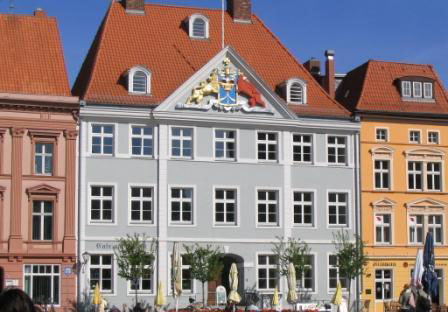 Alte Markt, Stralsund
Alte Markt, Stralsund
Stan paused to think and then, squeezing her hand, began to discourse: "Well, my love, every generation has something positive which every other seems to lack. The past contains many important keys for us and reminds us that we are part of a continuity. Look at our family - our destiny seems to be shaping around three countries principally - Poland, Germany and Sweden. You're a Pole through and through and you love your country. And that is good. But as the famous hymn says, other countries have skies as blue as our own, other countries have hearts that beat just like ours. No matter where we come from, we all have something in common. We all love in the same way, we all have the same secret spiritual yearnings - Pole, German and Swede. In heaven we shall have only one nationality and in some respects we, as Christians, only have one nationality here and now."
Some Poles overheard him and drew closer to eavesdrop on what he was saying.
"Look at this place. Stralsund has a great history. It was one of the earliest towns to adopt the Protestant faith and so made an alliance with Sweden during the 30 years' war. Together with the Danes, they bravely defended the town in 1628 against the German Catholic Wallenstein. You see, in those days religion meant more than nationality, as it ought to. In recent times nationalism has become a religion of its own, and a very dangerous one as well. Germans and Poles lived happily side by side with one another for centuries and forged a common culture in Silesia, West Prussia and even in my own Masuria. Each adopted the best that the other possessed without saying it was "German" or "Polish". In Masuria we created our own German dialect and our own peculiar Masurian-German town names. The Schlonzaks did the same in Silesia, and the Kashubians in northern West Prussia."
Some of the Polish listeners began to chatter amongst themselves fascinated by what Stan was saying though some of the older ones were clearly not in agreement with him.
"I love Stralsund. It has made many brave men. One of its heroes is a Major Ferdinand von Schill who was a distingished Prussian officer of hussars. He secretly left Berlin with his regiment without the King's knowledge and led an uprising against the French aggressors in Northern Germany. But few rallied to his noble cry. He was driven by the enemy to Stralsund which he made his last stronghold. Schill and most of his defence force fought heroically against the French but were overwhelmed, and most were killed out in the streets. There's an inscription on the pavement on Fahr-Strasse commemorating this brave son of Germany. His grave is in St. Jürgen cemetary."
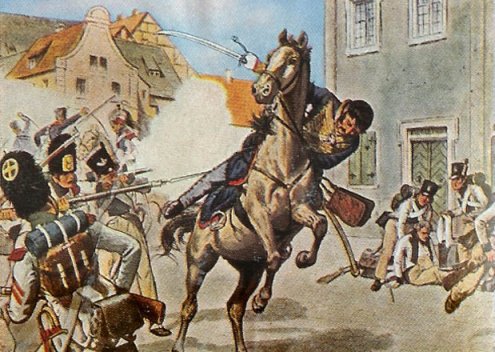 Major Ferdinand von Schill
Major Ferdinand von Schill
Anna was stunned as she listened to his tale and the small Polish group appreciated the piece of history. A young man came up to Stan.
"I wish more of the older generation were like you," he said, "and could understand these things. We're still living in the past in Poland," he said, frowning.
Stan smiled. "Young man, that's my very point. The past has both good and bad. The thing is to look at it honestly and sift through it, remembering that which is good. Our land is full of memorials to the nazi holocaust, so much so that our tourist guides seem to mention almost nothing else. We must remember these things but not let them drown out the good things we have shared with our neighbours."
The young man agreed.
"Come on," said Anna becoming a little bored, "let's go outside or you'll talk all evening! Let's go and see that Church in the square and then get some supper."
Stan reluctantly agreed and they headed for the main doors. Leaving the museum behind, they entered into the hallowed precincts of the Church of St.Nicholas.
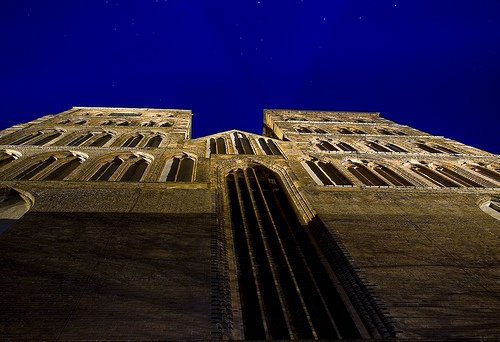 St.Nicholas' Church, Stralsund
St.Nicholas' Church, Stralsund
"What a beautiful altar," gasped Anna.
"Yes," Stan agreed, "and what you probably don't know is that it's Dutch and not German."
Anna giggled. "And I suppose you know what that writing on the benches is too!"
"Dat ken kramer ist de blief da buten, oder ick schla em up de schnuten..." Stan paused. "It's 16th century German, how amusing," and started to chuckle, knowing that Anna would be provoked by his secretiveness and would want to know about its meaning.
"Well, what does it mean, then?" she asked impatiently. "I bet you don't know," though secretly she knew he probably did.
Stan laughed, and then remembered he was in a Church and tried unsuccessfully to be serious.
"It's quite funny really, and quite out of place for a church," and then turned away pretending not to be interested any longer. Anna pulled him back, determined not to let him escape. It wasn't every day that she could outwit him and she intended to score that day.
"Go on, tell me what it means, Stan," and gave him the big dolly-eyes treatment. Stan was amused as always, and loved the mutual teasing that went on between them. He loved to play with her youthfulness and to indulge his sense of fun which his older wives did not always appreciate.
"It says: 'He that's no merchant stay without, else I'll strike him on the snout'," said Stan looking very serious, but barely restraining his laughter.
Anna bent up in stitches. "Come on, be serious!"
"Truly, that is what it means," he insisted. "I told you it was out of place in a church, and not very Christian at all, eh?"
Anna giggled. How she loved having Stan to herself, his wit and knowledge titillating and stimulating her mind, and the warmth of his arms around her filling her with an inner glow and a deep sense of security. The age gap between them seemed to make little difference as they took everything so easily together.
Stan and Anna had gelled from the first time they met. They above all felt comfortable with one another, able to relax together, something Stan especially prized. He had problems with over-sensitive women because of the emotional drain they were on him. Polygamy brought men and women together that monogamy would have probably spat out. If Anna and Stan did not share similar interests, Anna would always be able to find a sister-wife who did. Skating was Anna's forte and so when the winter came she was out on the frozen ponds, rivers and lakes. Stan was hopeless on ice and refused adamantly to try so Anna had turned to Kryztina and Kasia for whom it was particularly enjoyable. Stan would watch them and encourage the children and any others who might want to venture out with padded pants but kept his feet firmly on terra firma. But it was enough for Anna to know that he admired her skill on the ice, and to skate for him was for her a way of expressing her love for him. Though Kryztina was good on the ice she was even better on the ballroom floor. Dancing was in her blood and she whipped up such an enthusiasm for it amongst the wives that it spread to almost all of us.
The couple casually strolled back to the hôtel passing monuments of the town's alumni of the past.
"I wonder who Glümer is?" mused Anna as they passed a statue of an imposing man.
"No idea," responded Stan, and surprised Anna who thought her husband knew everything. After a good meal they retired to bed again and slept well.
The following morning Stan started making enquiries about second-hand cars.
"Go up to Bergen on the island and you'll find a used car dealer called Helmut Schmidt. He's not far from the Arndt tower. You'll probably find what you're looking for there," suggested the hôtel proprietor. Stan thanked him. They packed their bags and in two hours were onboard a bus and driving through the island of Rügen.
"I can understand now why you liked this place so much, Stan," remarked Anna, remembering the time he had wanted to move the family there. "Maybe we should move here after all. I'm beginning to like it more and more." They said little as they enjoyed the countryside and the picturesque villages of Rambin, Samtens and Stönkvitz where the bus stopped to disgourge and pick up passengers.
Stan had not said much about the mansion in Kopparberg and after leaving Stönkvitz set about explaining why they had settled for Sweden instead.
"Germany will go the same way as Catholic Poland in the end. The government is not too friendly to religious faiths that are not mainstream. We must never forget that Bismarck's Kulturkampf runs in their blood to some extent."
Anna wasn't interested but was too busy gazing at the fields. She could be a little rude and brusque at times which Stan hated passionately. But she was young and still being moulded and Stan knew he would have to be patient.
She suddenly turned towards him, sensing she had probably hurt him and kissed him on the cheek."
"I'm sorry, darling, but this is sooooo beautiful - can't you tell me everything on the ferry?"
Stan smiled. Anna had a way of melting him at times. She could be tactless and thoughtful in the same moment, a part of that frustratinginly Polish way of being that I, as an American, took a long time to get to understand. What I liked about Anna - and I know Stan did too - was the way she could hop around emotionally like a butterfly. If she was hurt it would soon pass away as she turned her attention to something uplifting, and in the loveliness of her soul, sought to uplift those around her at the same time by sharing whatever warm feeling had touched her heart. In that respect she was completely unselfconscious, something I envied her for.
The bus rolled through Teschenhagen, another pretty village.
"Look, we're almost there!" she said gleefully. "And then you can drive me around the whole island!"
Stan laughed. How he loved her gaity when she was happy. All burdens seemed to melt away when she was in this mood and he would have done almost anything for her just to prolong the atmosphere.
The bus rumbled to a halt in the capital of Rügen in front of a highly conspicuous Romanesque Church. There was a good two kilometer walk to Arndt's tower but neither particularly minded. It was a pleasant autumnal day, the sun was shining brightly, and nothing but the moment seemed to matter.
Whilst Stan looked around Schmidt's garage, Anna climbed the tower to get a view of the surrounding countryside, and by the time she had come down he had already found the car, test driven it, filled out the papers, and paid for it in cash from the stash in his coat.
"Hey, don't I have any say in choosing a car?" she said half seriously.
"Nope," replied Stan winking, "you ran off to let me do all the work. And besides, if I consulted you, I'd have to consult all the others too, wouldn't I"
Anna smiled. She didn't mind. And in any case, she wasn't interested much in such things - so long as it had four wheels, was comfortable, and got her from A to B, she was satisfied. She was in the front passenger seat in a bound and sat waiting for Stan to get a move on.
"What about your suitcase, lazy bones!" shouted Stan as he knocked on her window.
"Can't you get it for me, Stan. Look, you're nearer it than I am!"
She was in a cheeky mood but Stan was not amused. When she saw that Stan wouldn't oblige, she got out of the car again and headed for the gate of the tower where the bag lay for anyone who might fancy pinching it. Meanwhile, Stan had got in and started driving away. Anna ran in hot pursuit, a picture of alarm, and Stan, roared with laughter, as he slammed on the brakes to let her catch up.
She flung herself on her seat again, pushed the bag onto his lap and with pursed lips folded her arms in protest. Some passers-by looked on in amusement. Stan leaned over to her and whispered something flattering into her left ear. She started grinning, eyed him for a moment, and then started kissing him passionately on the mouth.
"Come on, sweetheart, Sassnitz won't wait for us forever," and they headed off down the road to the ferry station.
"Look, my love, this is near where I wanted us to move at one time," said Stan and pointed to a large estate in the distance. Anna was enamoured.
"Oh, must we go to Sweden? This is such a beautiful island. Couldn't we at least buy it as a summer residence??"
Stan laughed. "Of course, my dear, if you'll sell that lovely smile of yours and we can raise the money. Who knows, it's still for sale, though I don't suppose it will be for long. Maybe we could turn it into a hôtel for holiday makers on the German-Swedish route?"
They stopped in Lietzow for a snack but not before pausing on the bridge that separates the greater from the lesser Jasmunder Bodden, a spectacular lagoon that had been a Luftwaffe seaplane base during the previous war.
They arrived in Sassnitz too late for the evening ferry to Trelleborg and so checked in to the Hôtel am Meer. This was definitely turning out to be Anna's treat of a lifetime given the impossibility of such a large family ever really going for any holidays. Though it was chilly they walked along the stoney Strandweg after a pleasant meal at the Miramare Restaurant. Anna wanted this to last for ever.
"Look, darling, a forest further up the beach. Can't we please go there?" begged Anna.
"Not by foot. Let's take the car. There are some spectacular chalk cliffs called the Wissower Klinken right on the edge of your Stubnitz forest. Then I think I want to turn in."
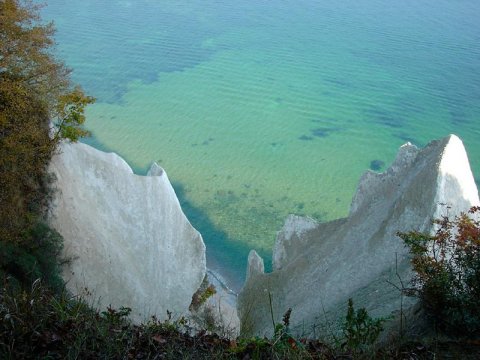 Wissower Klinken
Wissower Klinken
Anna nodded and they took the breeze together.
"Over there is Sweden and our new home," said Stan, lowering his voice like the announcer at the beginning of some drama. They stared across the darkening sea. "I am so looking forward to getting home now." Tall pillars of chalk poked out eerily from the sea like silent sentinels barring their way. Somehow Stan was looking beyond them, sensing accutely being cut off from the rest of his loved ones. With his heart he was reaching towards his unseen and unknown home in the Swedish mountains.
Anna had mixed feelings. For the last twenty-four hours she had indulged herself in the romance of a typical monogamous couple. She knew it was an illusion but had enjoyed it all the same. She too wanted to get back to her sister-wives and yet this time alone with Stan had been very special for her. Most of the wives had had similar such experiences and treasured the memories of them. But she still had Stan for another day or two and was determined to make the best of it. She would have no regrets about returning him to the others for she yearned for their company and love too.
When Stan suddenly started shivering she was brought out of her daydream and knew it was time to get back to the hôtel. The ferry would leave early the next morning. The lights of the Restaurant Waldhalle were inviting as they drove past and for a moment she had wanted to ask Stan if they could stop and go in. But, no, she had been spoiled quite enough for one day. She knew the hôtel expenses would dig deep into the family economy and felt a twinge of guilt.
Stan was no longer with her. Yes, he was laying there next to him in bed but his thoughts were not just of her, but of the others. Forgetting herself a moment, she whispered: "Soon we'll be home, darling." He caught the light of selfless love in her eyes and mellowed, as he always did when a wife was in the spirit of the whole family. He kissed her tenderly, and like the mysterious aura arising from the flickering candle lights on the altar of St.Nicholas' Church in Stralsund, an esoteric mist surrounded them both and they drifted away into a world of carefree dreams.



This page was first created in 2002
Last updated on 5 March 2009
No part of this work may be reproduced or stored on any
medium without the express permission of the publisher.
Violators of this copyright will be prosecuted
Copyright © 1987-2009 Chavurat Bekorot
All Rights Reserved | Alle Recht vorbehalten

















































